Business Intelligence (BI) Tools
Business Intelligence (BI) Tools Overview
Top Rated Business Intelligence (BI) Products

These products won a Top Rated award for having excellent customer satisfaction ratings. The list is based purely on reviews; there is no paid placement, and analyst opinions do not influence the rankings. Read more about the Top Rated criteria.
Business Intelligence (BI) Tools TrustMap
TrustMaps are two-dimensional charts that compare products based on trScore and research frequency by prospective buyers. Products must have 10 or more ratings to appear on this TrustMap.
Business Intelligence (BI) Products
(1-25 of 211) Sorted by Most Reviews

TIBCO Spotfire® is a data visualization platform that utilizes predictive analytics. In addition to data viz, it includes data wrangling capabilities, predictive analytics, location analytics, and real-time streaming analytics.
Key Features
- Customizable dashboards (275)83%8.3
- Pre-built visualization formats (heatmaps, scatter plots etc.) (288)81%8.1
- Formatting capabilities (283)71%7.1
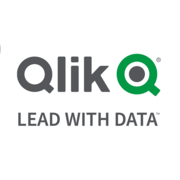
Qlik Sense® is a self-service BI platform for data discovery and visualization. It supports a full range of analytics use cases—data governance, pixel-perfect reporting, and collaboration. Its Associative Engine indexes and connects relationships between data points for creating…
Key Features
- Drill-down analysis (299)79%7.9
- Customizable dashboards (292)78%7.8
- Formatting capabilities (292)69%6.9

Tableau Desktop is a data visualization product from Tableau. It connects to a variety of data sources for combining disparate data sources without coding. It provides tools for discovering patterns and insights, data calculations, forecasts, and statistical summaries and visual…
Key Features
- Customizable dashboards (161)87%8.7
- Formatting capabilities (158)84%8.4
- Drill-down analysis (155)82%8.2
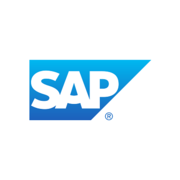
SAP Crystal is an analytics and reporting software solution for SMBs. SAP Crystal comprises Crystal Reports for pixel-perfect reporting, and SAP Crystal Server for automated distribution and self-service access to reports, dashboards and data exploration.
Key Features
- Publish to PDF (133)91%9.1
- Report sharing and collaboration (120)88%8.8
- Formatting capabilities (135)85%8.5

Microsoft Power BI is a visualization and data discovery tool from Microsoft. It allows users to convert data into visuals and graphics, visually explore and analyze data, collaborate on interactive dashboards and reports, and scale across their organization with built-in governance…
Key Features
- Customizable dashboards (143)89%8.9
- Drill-down analysis (143)88%8.8
- Formatting capabilities (142)81%8.1
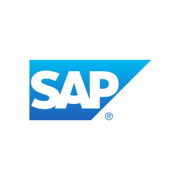
SAP Analytics Cloud combines planning, business intelligence, and predictive analytics as a unified cloud-based platform allowing visualization, planning and prediction to be performed within a single tool. It is built on top of the very fast SAP Cloud Platform, and integrates natively…
Key Features
- Personalized dashboards (134)91%9.1
- KPIs (132)91%9.1
- Key Performance Indicator setting (127)89%8.9

TIBCO Jaspersoft is an embedded business intelligence suite designed to be built-into SaaS products as an integrated reporting engine. It provides reports and dashboards for customer-facing applications without requiring app developers to build their own reporting engine.
Key Features
- Multi-User Support (named login) (89)91%9.1
- Publish to PDF (94)85%8.5
- Formatting capabilities (91)73%7.3

Tableau Server allows Tableau Desktop users to publish dashboards to a central server to be shared across their organizations. The product is designed to facilitate collaboration across the organization. It can be deployed on a server in the data center, or it can be deployed on…
Key Features
- Customizable dashboards (92)83%8.3
- Drill-down analysis (93)80%8.0
- Formatting capabilities (91)57%5.7

SAP Lumira Discovery is SAP’s data visualization and discovery application. It facilitates data discovery, visualization, and analysis by assisting users with creation of dashboards, infographics, presentations, data facets, tag clouds, and more.
Key Features
- Formatting capabilities (98)96%9.6
- Pre-built visualization formats (heatmaps, scatter plots etc.) (97)90%9.0
- Drill-down analysis (95)84%8.4

Birst offers multi-tenant cloud BI for deployment in a public or private cloud, or on-premises. It provides an in-memory columnar data store and a BI layer comprising a reporting engine, predictive analytics tools, mobile native apps, dashboards, discovery tools, and an open client…
Key Features
- Customizable dashboards (78)80%8.0
- Drill-down analysis (79)80%8.0
- Formatting capabilities (78)70%7.0

QlikView® is Qlik®’s original BI offering designed primarily for shared business intelligence reports and data visualizations. It offers guided exploration and discovery, collaborative analytics for sharing insight, and agile development and deployment.
Key Features
- Customizable dashboards (63)86%8.6
- Drill-down analysis (63)82%8.2
- Formatting capabilities (64)78%7.8

Zoho Analytics (formerly Zoho Reports) is a self-service BI and analytics platform that allows users to analyze their business data and create reports and dashboards. It is designed to help users create and share reports quickly, without IT assistance.
Key Features
- Customizable dashboards (77)84%8.4
- Report sharing and collaboration (80)83%8.3
- Formatting capabilities (79)80%8.0

Microsoft BI (MSBI)
Microsoft BI is a business intelligence product used for data analysis and generating reports on server-based data. It features unlimited data analysis capacity with its reporting engine, SQL Server Reporting Services alongside ETL, master data management, and data cleansing.
Key Features
- Customizable dashboards (54)85%8.5
- Formatting capabilities (54)83%8.3
- Report sharing and collaboration (54)82%8.2

Entrinsik Informer is a web-based reporting and business intelligence application popular in the higher education vertical market. It helps organizations transform real-time data into actionable information by delivering ad-hoc reporting, data analysis, and interactive dashboards.…
Key Features
- Multi-User Support (named login) (10)90%9.0

IBM Cognos is a full-featured business intelligence suite by IBM, designed for larger deployments. It comprises Query Studio, Reporting Studio, Analysis Studio and Event Studio, and Cognos Administration along with tools for Microsoft Office integration, full-text search, and dashboards.…
Key Features
- Report sharing and collaboration (52)87%8.7
- Drill-down analysis (52)81%8.1
- Formatting capabilities (52)79%7.9

Domo
Domo is a full self-service business intelligence software that combines several data analysis and reporting tools into one platform. It helps users connect to multiple data sources, create robust visual reports, manage their data, send messages in real-time, manage projects, and…
Key Features
- Customizable dashboards (70)85%8.5
- Drill-down analysis (70)84%8.4
- Report sharing and collaboration (70)83%8.3
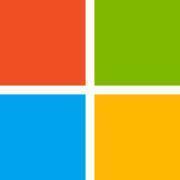
MS SharePoint / SQL refers to Microsoft Sharepoint, a web-based collaborative platform, being used in tandem with Microsoft SQL Server to provide business intelligence analytics and reporting. They can provide BI content such as data connections, reports, scorecards, dashboards, and…

Tableau Online
Tableau Online is a self-service analytics platform that is fully hosted in the cloud, making it easily accessible. Tableau Online enables users to publish dashboards and invite colleagues to explore hidden opportunities with interactive visualizations and accurate data, from any…
Key Features
- Customizable dashboards (68)87%8.7
- Report sharing and collaboration (66)83%8.3
- Drill-down analysis (68)83%8.3

Google Charts
Google Charts provides a way to visualize data on your website - for free. From simple line charts to complex hierarchical tree maps, the chart gallery provides a large number of ready-to-use chart types. The most common way to use Google Charts is with simple JavaScript that you…
Key Features
- Publish to Web (55)84%8.4
- Pre-built visualization formats (heatmaps, scatter plots etc.) (55)84%8.4
- Formatting capabilities (57)79%7.9

Looker
Looker is a BI application with an analytics-oriented application server that sits on top of relational data stores. It includes an end-user interface for exploring data, a reusable development paradigm for data discovery, and an API for supporting data in other systems.
Key Features
- Customizable dashboards (63)81%8.1
- Drill-down analysis (64)79%7.9
- Report sharing and collaboration (65)78%7.8

The SAP® BusinessObjects™ Business Intelligence Platform provides users with ad hoc queries, reporting, data visualizations, and analysis tools. Its integrated, unified infrastructure aims to offer scalability from one-to-many tools and interfaces on-premise, in the cloud, or as…
Key Features
- Pixel Perfect reports (43)89%8.9
- Customizable dashboards (43)84%8.4
- Report Formatting Templates (43)83%8.3
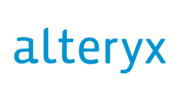
Alteryx
Alteryx aims to be the launchpad for automation breakthroughs. Be it for personal growth, achieving transformative digital outcomes, or rapid innovation, the vendor boasts users will see unparalleled results. Alteryx converges analytics, data science and process automation into one…
Key Features
- Integration with R or other statistical packages (39)88%8.8
- Drill-down analysis (41)83%8.3
- Formatting capabilities (46)77%7.7

ThoughtSpot
ThoughtSpot is an analytics platform that enables users to leverage natural language search and AI to find data insights and tap into the most cutting edge innovations the cloud data ecosystem has to offer. The vendor states companies can put the power of their modern data stack…
Key Features
- Drill-down analysis (63)84%8.4
- Customizable dashboards (63)78%7.8
- Formatting capabilities (62)74%7.4

Sigma
Sigma Computing headquartered in San Francisco provides a suite of data services such as code free data modeling, data search and explorating, and related BI and data visualization services.
Key Features
- Report sharing and collaboration (58)87%8.7
- Customizable dashboards (58)87%8.7
- Formatting capabilities (60)77%7.7

Sisense is a BI software and analytics platform. With what the vendor calls their In-Chip™ and Single Stack™ technologies, users have access to a comprehensive tool to analyze and visualize large, disparate data sets without IT resources.
Key Features
- Customizable dashboards (46)90%9.0
- Formatting capabilities (46)85%8.5
- Drill-down analysis (46)80%8.0
Learn More About Business Intelligence (BI) Tools
What is Business Intelligence (BI)?
Business Intelligence tools are designed to make sense of the huge quantities of data that organizations accumulate over time. BI tools analyze this information and present it as actionable information that can guide decision making.
Business Intelligence software (BI) makes up a large heterogeneous category of software. Not all tools in the category can be meaningfully compared to each other. There are several types of BI tools of which the most substantive are Full-Stack Business Intelligence Tools and Data Visualization Tools.
Business Intelligence Tools Features & Capabilities
- BI Platform Type
- Supported Data Sources
- Standard Reporting
- Ad-Hoc Reporting
- Report Output and Scheduling
- Data Discovery and Visualization
- Access Control and Security
- Mobile Capabilities
- APIs / Embedding
Full-Stack Business Intelligence Tools
Full-stack or traditional products are enterprise-level BI tools designed to solve the specific problem of enterprise data silos. Much crucial business data is stored in a range of different data stores, many attached to business applications like ERP. Full-stack BI tools consolidate all data in a data warehouse which is a relational database designed for data mining instead of transactional processing.
Slices of data from the warehouse—usually summary data for a single department like sales or finance—are stored in a “data mart” for quick access. All of this structured data is normalized by using an ETL process (Extract, Transform and Load) whereby transactional data is combined into a single pool of data and then “transformed” into a more appropriate format for querying and analysis before being written in the data warehouse database.
The Full-Stack Business Intelligence TrustMap shows only those products that belong in this sub-category.
Data Discovery and Visualization Business Intelligence
Data Visualization products have a different purpose. These BI tools are primarily designed to help data analysts discover patterns in large quantities of data and to build compelling visual representations which allow these patterns to be easily understood.
These business intelligence tools often use a technology called in-memory analytics to query data residing on a computer’s RAM rather than on a physical disk. This means that the data does not have to be stored anywhere for subsequent analysis.
Data visualization products often have lower cost of implementation and require less support. This can make them good business intelligence tools for small companies that don’t need a full-stack business intelligence solution.
The Data Visualization TrustMap shows only those tools that belong in this sub-category.
Business Intelligence and Reporting
Many BI tools also enable some forms of reporting. Modern BI’s ability to intake many different forms of data and present them in increasingly high and professional quality, some organizations are able to use their BI tool both to surface specific insights and generate regular reports. The level of automation found in BI reporting will vary highly from product to product. For general reporting needs, the ability to set-and-forget data pipelines into a BI tool and the normalization of functions like dynamic dashboards make some leading BI tools competitive automated reporting tools as well. However, specialized reporting cases that use more niche data structures may be less automatable in traditional BI tools.
Business Intelligence Software Comparison
When considering different business intelligence tools, consider the following aspects of each product offering.
- Ease of Use: Some BI tools offer high complexity and customization, but can be difficult for non-technical users. You should consider the technical ability of the staff that will be using the BI tools as well as if you need more complex features.
- Compatibility: Many BI tools are not complete, end-to-end solutions. For some organizations, purchasing BI software from multiple vendors may be necessary. If your business needs BI features that aren’t all covered in a single product, be sure to ask venders about integrations and compatibility with other software.
- Scalability: Some BI software doesn’t scale up very well as data needs increase. Consider the breadth of data generated by your organization and decide if that amount will stay the same or increase. If your data needs will increase, be sure to choose a BI solution that can handle your expected growth.
Start a Business Intelligence Software Comparison
Pricing Information
Business Intelligence software is generally quite expensive. However, it’s worth remembering that it is often money very well-spent in terms of significantly improved decision-making.
One of the impediments to understanding pricing is that vendors base their pricing on a broad range of different variables from number of users to number of CPU cores.
However, as a very rough guide, advanced report authoring can cost $2,000 to $2,500 per seat, while interactive report viewing can be about half that amount. Static report viewing can be as little as $50 per seat.